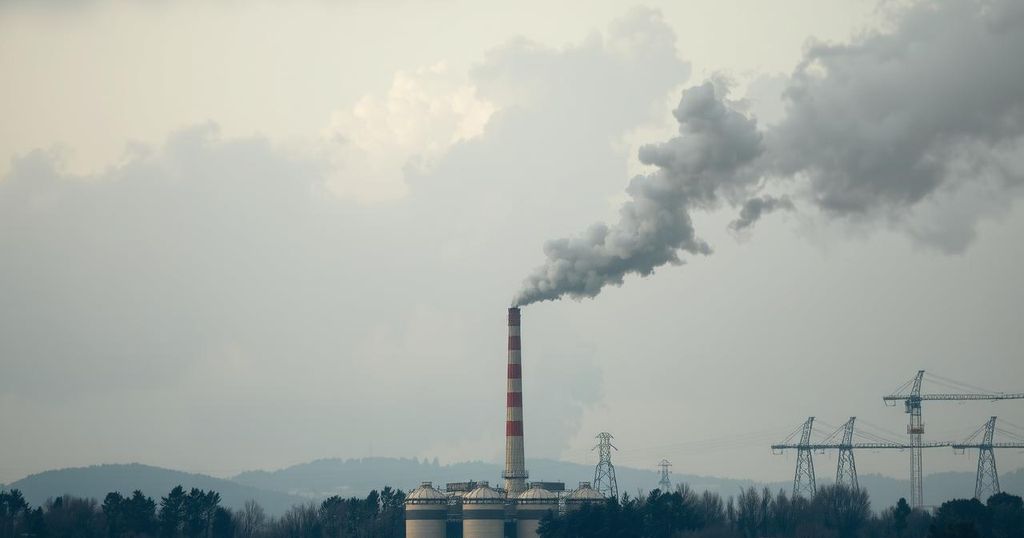IQAir’s 2024 report ranks Pakistan as the third most polluted country, following Chad and Bangladesh. The report notes severe smog conditions in Punjab and persistent PM2.5 levels significantly exceeding WHO standards. Lahore, Multan, Peshawar, and Sialkot are among the most polluted cities in Pakistan, which faces extensive health risks from air quality issues. The data emphasizes the global impact of air pollution on health, with high rates of premature mortality linked to environmental factors.
In its 2024 report, Swiss air technology company IQAir indicated that Pakistan ranked as the third most polluted country globally, particularly exacerbated by an unprecedented smog season. Chad was identified as the most polluted nation, while Bangladesh and the Democratic Republic of Congo followed Pakistan, with India rounding out the top five.
During 2023, Pakistan experienced alarming smog levels, particularly in Punjab, leading the situation to be classified as a “calamity” where approximately two million citizens required medical intervention. Government actions included implementing lockdowns and school closures to mitigate pollution.
Pakistan’s average concentration of fine particulate matter (PM2.5) measured 73.7 micrograms per cubic metre, nearly 15 times higher than the World Health Organization’s (WHO) safety standards. Interestingly, this number remained unchanged from the 2023 levels, indicating persistent air quality issues.
Within the South and Central Asia region, Pakistan ranked second, closely behind Bangladesh. Among the country’s cities, Lahore, Multan, Peshawar, and Sialkot were identified as having significantly high pollution levels. The report attributed this issue to various sources, including industrial activities and vehicular emissions.
While some cities like Karachi showed improvement, declining from 55 to 46 micrograms per cubic metre, others such as Peshawar and Islamabad recorded an increase in annual averages, highlighting inconsistent pollution trends across the country.
In November, five Pakistani cities recorded PM2.5 levels exceeding 200 micrometres. Based on data from 40,000 air quality monitoring stations worldwide, it was noted that approximately 70% of the Pakistani population faced health issues linked to smog.
International comparisons revealed Chad’s pollution levels were 18 times higher than WHO’s recommended limits, while India’s PM2.5 measurements were ten times over the threshold. The Indian city of Byrnihat was designated as the most polluted metropolitan area globally in 2024, surpassing all others with an average PM2.5 reading of 128.2 micrograms per cubic metre.
Despite a noted overall decrease of 7% in pollution levels across India compared to 2023, the country still housed six of the world’s nine most polluted cities. Other regions also fared poorly, with Bosnia emerging as Europe’s most polluted country, and additional countries such as Burkina Faso and Afghanistan lacking sufficient data for inclusion.
Though seven nations reported pollution levels below the WHO guidelines, only 17% of cities tested achieved this standard in 2024. The annual report from IQAir underscored air pollution’s detrimental health risks, estimating it contributed to 8.1 million premature deaths globally in 2021 according to the Health Effects Institute.
Pakistan’s air quality remains critically poor, ranking third globally for pollution in 2024, as highlighted in IQAir’s report. The country struggles with high PM2.5 concentrations exacerbated by various industrial and environmental factors, prompting significant health risks for its citizens. Despite a consistent pollution level compared to 2023 and government efforts to combat the crisis, the ongoing challenges highlight a need for sustained action. The alarming figures reinforce the global urgency of addressing air pollution, which poses an immense health threat worldwide.
Original Source: www.dawn.com




